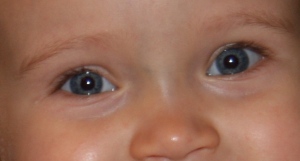I love reading to my granddaughter…so this list was of great interest to me. See what you think.
What are your favorite books to read to the children in your life?
The simple act of reading with our children can inspire a love of books that will last a lifetime, but do you know which children’s classics you should have on your bookshelf? We’ve rounded up 15 of the most well-known, timeless tales that every child deserves to know.
Pregnant women read and get so much information…but are public health messages making moms to be feel that they can avoid most defects. As a nurse, I know what defects are preventable by taking care of yourself but I also know that some defects are not preventable no matter how well you take care of yourself.
What do you think of these messages that are directed toward pregnant women?
Public health messages that suggest mothers can prevent most defects by taking care of themselves during pregnancy abound.
In an article focused on the many sources of misinformation available to women attempting to research the safety of particular medications and the contradictory advice women receive from doctors, Dr. Mitchell’s words are directed at institutions and professionals who have failed to give pregnant women the information they need.
I have to mention this news item related to “diet”. It is not something new but it is verified now by a study that was presented this week. For those of you who are interested in the Mediterranean diet this is very good news and may be an excellent reason to look into eating more olive oil, legumes, nuts, fruits and vegetables as well as fish and enjoying several glasses of wine each week!
One group assigned to a Mediterranean diet was given extra-virgin olive oil each week and was instructed to use at least 4 four tablespoons a day. The other group got a combination of walnuts, almonds and hazelnuts and was instructed to eat about an ounce of the mix each day. An ounce of walnuts, for example, is about a quarter cup — a generous handful. The mainstays of the diet consisted of at least three servings a day of fruits and at least two servings of vegetables. Participants were to eat fish at least three times a week and legumes, which include beans, peas and lentils, at least three times a week. They were to eat white meat instead of red, and, for those accustomed to drinking, to have at least seven glasses of wine a week with meals.
They were encouraged to avoid commercially made cookies, cakes and pastries and to limit their consumption of dairy products and processed meats.
On a lighter note…yesterday March 1st…which is considered the first day of Spring in meteorology, I saw a robin in my front yard trying to hide from the falling snow.
So Spring is on its way!


